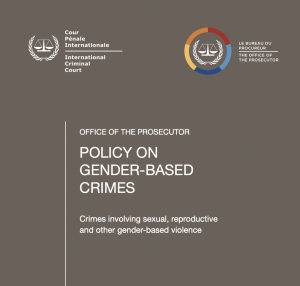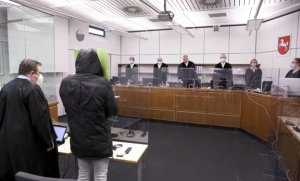By: Gavin Gretsky
Impunity Watch News Staff Writer
UNITED KINGDOM – The British Government is facing multiple lawsuits both domestically and internationally that challenge the legality of the recently passed Northern Ireland Troubles Legacy Act (Act).
 |
The Act, which was passed by British Parliament in September 2023, is an attempt to bring finality and closure to the Troubles in Northern Ireland. The Troubles was a three-decade long period of sectarian violence between Irish republican paramilitaries, the British army, and unionist paramilitaries which resulted in more than 3,500 deaths and over 47,000 injuries. The Troubles effectively ended with the signing of the Good Friday Agreement in 1998, however over 1,000 deaths from that era remain unsolved.
The Northern Ireland Troubles Legacy Act is modeled after the South African Truth and Reconciliation Commission established by Nelson Mandela after the fall of apartheid. The Act will be implemented by the Independent Commission for Reconciliation and Information Recovery (ICRIR), which will seek to find information on the circumstances of the deaths or injuries of victims of the Troubles and share the information with the families of the victims. Under the Act, perpetrators who provide truthful accounts of their actions to the ICRIR can be granted immunity from prosecution. Additionally, the Act will prevent any new civil cases and inquiries about the Troubles from starting. The Act received fierce opposition from all political parties in Northern Ireland, as well as many victims’ groups and organizations, but was supported by U.K. veteran’s groups and Britain’s governing Conservative party.
Shortly after the Act was passed in September, sixteen separate legal challenges were filed with the U.K. High Court in Belfast, Northern Ireland. Legal representatives of the parties, mostly made up of the families of victims from the Troubles, argue that the Act is unlawful because it is incompatible with international human rights standards, including the European Convention on Human Rights. The parties state that the Act interferes with the justice system by denying victims access to the courts which had been a viable avenue open to victims and their families before the Act’s passage. For example, in 2021 an inquest through the previous system found that ten individuals killed in Belfast in 1971 were unarmed at the time of their deaths and that the use of force by the British army was “clearly disproportionate.” Petitioners also indicated their intention to file applications with the European Court of Human Rights (ECHR).
In addition to domestic legal challenges, the Act is now facing challenges on the international stage. The Republic of Ireland has announced that it will be bringing a case against the United Kingdom at the ECHR. The Irish government’s main concern is the grants of immunity given under the Act which will create a barrier to any other action by victims or their families. Grants of immunity have previously been found by the ECHR to be incompatible with a country’s obligation to maintain means to investigate unnatural deaths and torture, a provision of the Good Friday Agreement signed by the United Kingdom. According to Irish Prime Minister Leo Varadkar, both the United Nations and the Council of Europe support Ireland’s position in bringing this challenge. Conversely, the U.K. government states that Act complies with the ECHR and the Good Friday Agreement because it balances grants of immunity with the investigative powers of the ICRIR.
Further details on the filings and decisions of these cases are forthcoming as the cases progress through their respective domestic and international channels.
For further information, please see:
Aljazeera- Ireland to Launch Legal Action Against UK over Troubles Amnesty Law- 20 Dec. 2023
BBC- Troubles Legacy Bill Enters Law After Receiving Royal Assent- 19 Sept. 2023
BBC- What is the Northern Ireland Legacy Bill? – 5 Sept. 2023



